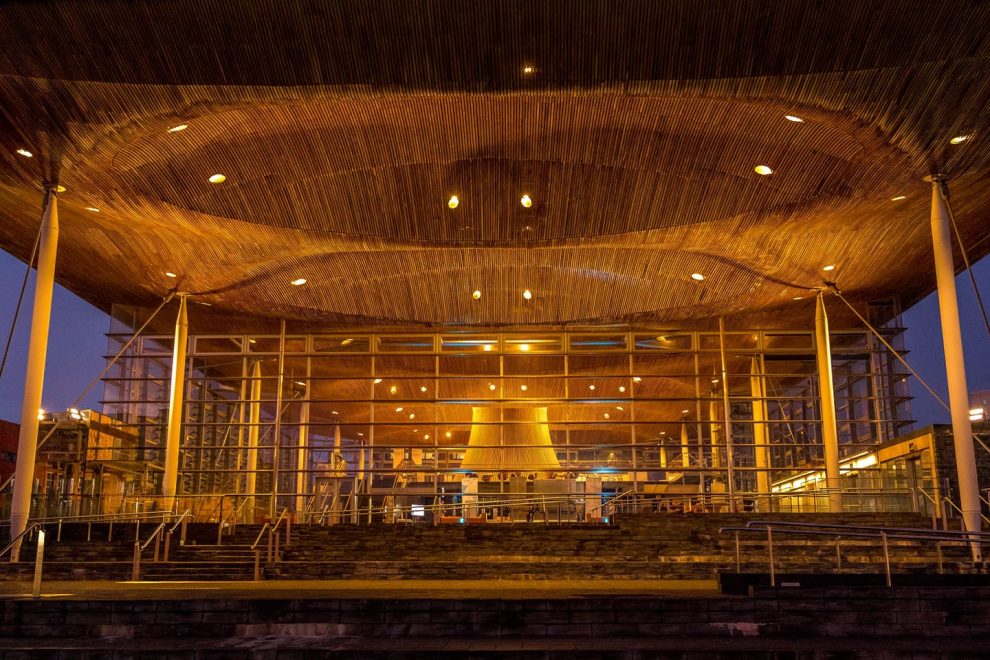THE WELSH Conservatives have delayed their Manifesto’s launch for May 6’s elections to the Welsh Parliament, following Prince Philip’s death.
The UK Government announced eight days of national mourning leading up to and including the day of Prince Philip’s funeral on Saturday, April 17.
The extra time will give the Conservatives a chance to dot i’s, cross t’s, and tail-gun Labour and Plaid Cymru’s campaigns.
Rumours that the delay is more due to slow typing and a lack of progress completing the Manifesto are undoubtedly unfounded…
The delay will also give Labour and Plaid Cymru less time to take pot-shots at the Manifesto before polling day.
The Manifesto will launch on Wednesday, April 21, in North Wales. In this area, the Conservatives hope to make significant gains at Labour’s expense.
WHAT’S IN IT SO FAR?
Before the announcement of the Manifesto’s delay, the Conservatives gave a good idea of some of the policies it is likely to contain.
An underlying thread of the Manifesto, and the Conservative campaign, will be the length of time Labour has been in power in Wales.
Either on its own, in combination with others, or propped up by rag-tag and bobtail, Labour has held power in Cardiff Bay for twenty-two years.
Both the Conservatives and Plaid have homed in on Labour’s ever-presence in government.
Both principal opposition parties suggest Labour is tired and warming over old pledges without any sense of direction.
On policy, the Conservatives’ most significant risk is allowing Labour and Plaid to box them in on the charge of ‘for Wales, see England’.
Labour needs to tread carefully on that point.
One of the criticisms both Plaid and the Conservatives have made is that the Party has cut and pasted Westminster legislation into its own proposals for the much-talked-about and constantly delayed Agriculture Bill.
Agriculture is an area of policy on which both Plaid and the Conservatives call for bespoke Welsh legislation and on which Labour is very weak.
On Tuesday (April 13), the Conservatives placed even more clear blue water between their proposals for Wales and those pursued by the Westminster government.
A PLAN FOR YOUNG PEOPLE

This has traditionally been a weak-spot for the Conservatives.
The parties reputation for being male, pale, and stale still lingers over it like a bad smell. Younger voters are issue-driven and less tribal than older voters. The average Conservative voter is far older than the Welsh average and playing to their core vote on the one hand and young voters on the other will be a remarkable trick to pull off.
However, the Conservatives have struck out in a different direction from Westminster in this election.
The Conservatives’ plan for Wales’ young people includes a promise to deliver 150,000 apprenticeships by 2026 and scrapping the Welsh Baccalaureate.
Those are long-term ambitions flagged previously; however, the Conservative proposals contain radical changes to higher education and access to training, education and employment.
Those changes include:
- Helping young people access education, training and employment with free bus travel and discounted rail travel for 16-24-year-olds
- Refunding tuition fees for those who choose to work for at least five years as doctors or nurses in the Welsh NHS, or as teachers in Welsh Schools after their studies; and
- Cutting tuition fees in half for Welsh students studying STEM and modern foreign language subjects at Welsh universities in recognition of their value to the Welsh economy
Those proposals are not all new and not all novel to the Conservatives. They are, however, a step towards young voters taken without abandoning their older core vote.
Looking at the lessons learned throughout the pandemic, the Conservatives also plan to ensure all of Wales’ schools, colleges and universities have mental health services for learners to access.
That is a new pledge and one which will potentially resonate with younger voters, for whom mental health competes with the environment as their principal concern.
OLDER PEOPLE

At the other end of the age spectrum, Welsh Conservatives will introduce an Older People’s Bill in the next Senedd. That proposal includes a legal requirement for public sector bodies to consult with older people when making decisions that affect their lives.
Such a proposal is long-overdue and delivering it within five years would be more than Labour has done in twenty-two.
Conservative voters are usually older and often sceptical of devolution’s benefits. However, the Welsh Government delivers many of the services upon which older voters rely. If the Conservatives can reach beyond the apathy of some of their General Election vote, they could seriously dent Labour – especially in North Wales.
The Party’s pledges of support for older people in Wales include:
- Maintaining free prescriptions.
- Keeping Free bus travel.
- Promote Free entry to CADW sites for the over 75s.
- Pilot free rail travel for over 75s.
- Run annual national awareness campaigns against elder abuse, age discrimination and scams and swindles; and
- Ensuring older people can access Welsh Government-funded work programmes.
Again, there’s little revolutionary or costly in the proposals. However, they mark out territory – including the trailed pledge not to raise tax to fund social care – which the Conservatives believe can turn out their share of the older vote.
THE WELSH NHS

A weak spot for Labour and one on which the Conservatives were pummelling the Welsh Government before the pandemic, Labour has defused some criticisms by the national effort against Covid-19.
Labour’s attempts to make out that attacks on its lamentable record are attacks on NHS heroes are matched only in their crass idiocy by Conservative attempts to con people into thinking everything in the garden is rosy over Offa’s Dyke.
The Conservatives are not helped by the remarkable conduct of the Westminster Government in doling out sweeties to mates during the pandemic. However, on their own merits, their proposals for Wales are uncontroversial.
On the Welsh NHS, the Conservatives announced plans to put into law fundamental guarantees through an NHS Covenant.
The Covenant would ensure that Welsh NHS staff and volunteers are treated with fairness and respect by future Welsh Governments.
The Conservatives say the NHS Covenant would provide guaranteed support in several ways, including:
- Increased investment in the NHS, with at least an extra 2% uplift in the NHS budget each year.
- Staff receive the pay as recommended by the independent NHS Pay Review Body
- Guaranteeing the NHS remains in public hands and is free at the point of use
- Improved staff well-being with more flexible working hours, increased holiday, greater access to childcare and mental health provision
- Stamping out abuse of NHS staff
While those are clearly intended to be headline-grabbing pledges, they gloss over that the inflation of costs within the NHS is annually much higher than consumer inflation. The pledges on pay and investment are particular hostages to fortune if Westminster tightens the funding taps. Who would the Welsh Conservatives blame then?
The NHS Covenant Bill would also put an NHS Reservists programme in place to enable public and former healthcare professionals to volunteer at their local NHS team during periods of high demand.
The NHS Reservists would operate on a part-time basis and create a structured environment for people to give back to the NHS, enabling the NHS to call up reservist skills when needed, including non-clinical roles such as drivers, electricians and people to be there to ensure no-one faces the end of their life alone.
That assuredly is new. It responds to reality. However, volunteering implies unpaid. Unpaid implies ‘cheap’. The Conservatives will need to watch they are not outflanked by staff organisations pointing out that cheap does not always mean best or that relying on goodwill is no substitute for proper investment.
COUNCIL TAX

The Conservatives – like Plaid Cymru – have promised to freeze Council Tax for the first two years of the next Senedd term. However, and like Plaid Cymru, the promise of tying Council funding to the headline rate of inflation ignores the fact that costs to Council increase at a compounding rate far beyond the Consumer Price Index.
Freezing Council Tax – unless the whole shortfall is made up by the Welsh Government (unlikely given the NHS spending pledge) – will mean cuts in Council services and a reduction in local authorities’ ability to bankroll the Conservatives’ other pledges.
The Conservatives’ arithmetic means that something somewhere has to give to fulfil its pledges. If they’re not raising either tax or Council Tax, there will have to be really deep cuts elsewhere in government budgets.
‘Efficiencies’ and cutting through the morass of bureaucracy surrounding Welsh public funding will not be enough on their own.
As George Osborne found out when he was Chancellor, there are only so many photocopiers you can turn off overnight before you have to cut jobs.
THE CLEAREST OF BLUE WATER

The one element of any Conservative Manifesto upon which the clearest blue water will be evident relates to the Senedd, its powers, its make-up, and the question of further or total Welsh autonomy.
In a speech delivered on April 7, the Conservative leader Andrew RT Davies could not have been clearer. He pledged, ‘no more powers, no more politicians, no more taxes, no more constitutional chaos’.
He continued: ‘Independence would put our recovery after coronavirus at risk.
‘A strong economic recovery is dependent on being part of one strong United Kingdom.
‘And home rule is just another excuse to mask Labour’s failings.
‘A referendum would plunge Wales into chaos at a time when we need to focus on recovery.
‘We already have the tools to change course and build a better Wales.
‘After the devastation of covid to our economy and people’s livelihoods we can’t afford to focus on the constitution’.
That’s not only turning his Party’s back on any change to the current constitutional arrangements; it hits at Labour’s windy wish to renegotiate Wales’ status within the UK and a rejection of a critical element of Plaid’s appeal to voters.
As a proposition, it’s carefully calibrated to suggest that Cardiff Bay’s parties’ priorities don’t match voters’ needs. It’s an either/or line: concentrate on rebooting the Welsh economy or focus on Wales’ and the UK’s constitutional settlement.
The water couldn’t be clearer or bluer.
The open question is how many voters are prepared to take the plunge and whether Labour – on the hottest political issue in Wales – will end up stranded on a shrinking and increasingly untenable middle ground between Plaid and the Conservatives.


















Add Comment